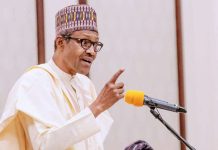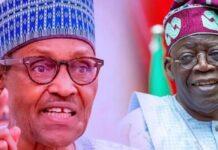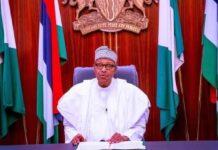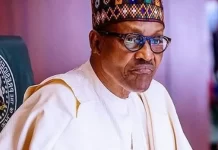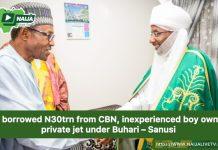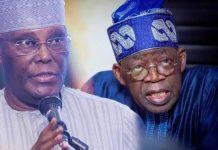
It would be germane to begin this reflection with the Irish poet W. B. Yeats’s poem, ‘The Second Coming’, written in the aftermath of the First World War. The first four lines of the poem go thus: “Turning and turning in the widening gyre/ The falcon cannot hear the falconer/ Things fall apart; the centre cannot hold/ Mere anarchy is loosed upon the world…” The imagery, symbolism and context of this century-old poem could be likened to the situation surrounding the two major contestants of the 2019 Nigerian presidential elections—Muhammadu Buhari and Atiku Abubakar—in a country undergoing a frivolous political war.
Here, the centre that cannot hold in the widening gyre is post-election Nigeria, and the causes of the gyre are the two aforementioned power-blinded old politicians wrestling and disgracing themselves in the corridors of power. They are the tyrannical falcons that cannot hear the cries of the falconers that decided their fates in the last election. That is, if the votes counted. Consequently, things are falling apart, especially the polity and the economy, and they seem not to care. Unfortunately, their actions and inactions are causing pain, hunger, frustration and confusion in the country. Yet, many Nigerians who are bearing the brunt of this anarchy are entertained with the rumours that these two men are not Nigerians.
It all began late last year when the radical leader of the Indigenous People of Biafra (IPOB), Nnamdi Kanu, released has six ‘scientific’ facts to back his claims that one Jubril Aminu Al-Sudani from Sudan is impersonating President Buhari. Kanu had argued that “Jibril is… an impersonator from Sudan, who resembles Buhari, then underwent a few plastic surgeries to make the resemblance closer and got coached to speak and act like the real Buhari.” This news, which satiated the media for months, was devoured by many Nigerians who are still finding it difficult to disengage themselves from it.
The essence of this fuss, then, was to create an impression that Buhari was dead or to undermine his ambition of becoming the president the second time. As if this was not enough, to some extent, it overheated the polity, causing a gyre in the socio-political space of the country. In the international community, Nigeria was painted in bad light and perceived as a country ruled by a dead man or a clone or a body-double. Buhari, in a bid to salvage the political and character damage the rumour caused him, told the world during the 24 session of the Conference of the Parties in Poland, that “Those who spread the rumours are ignorant and irreligious.” Needless to say, as many thought, it was unnecessary for Buhari to dignify such a tomfoolery with a response.
In the same vain, during one of the recent presidential election petition tribunal sittings in Abuja, the All Progressives Congress (APC) caused a gyre in the legal-political landscape of the country when it told the tribunal that the presidential candidate of the People’s Democratic Party (PDP) in the February 23, 2019, former Vice President Atiku Abubakar, was not a Nigerian by birth, and therefore was not qualified to contest for the election. They argued, citing the 1999 Constitution, that all votes purportedly cast for him/PDP and subsequently declared by the Independent National Electoral Commission (INEC), are wasted votes.
“From available records, the first petitioner [Atiku] was born on the 25th November, 1946, in Jada, Adamawa, in Northern Cameroon, and is therefore a citizen of Cameroon,” APC said. They also argued that in June 1961, part of Northern Cameroon, which included Adamawa State, became a part of Nigeria, which made Atiku a citizen of Nigeria, but not by birth.
What an interesting piece of history. It is also interesting that government would discourage history from being taught in primary and secondary schools, but some elements in its cocoon would deploy it in scoring political scores in electoral tribunal. This strategy by APC is ambitiously uncalled-for and politically incorrect. It is disappointing how they have forgotten or pretended to have forgotten that the major case before the tribunal is to determine whether the election that returned President Buhari into power, for the second time, was free and fair. The fuss about Atiku not being a Nigerian by birth could be challenged in another court if it poses a problem to them. Furthermore, are they insinuating that all those born in Adamawa prior to June 1961 are not Nigerians by birth or are not eligible to hold elective offices in Nigeria? Moreover, any constitution that allows someone to become a deputy director of customs and later a vice president of a country, but threatens to discriminate him from becoming a president should be overhauled.
There is no gainsaying that the politics, circumstances and rumours surrounding these two men are superfluous and complex. However, one should not be silent for fear of complexity about issues Nigeriana. These two men are, to serious-minded and objective Nigerians, inconsequential to the progress and development of the country. Intolerance and ambiguity is a sign of an authoritative personality, and the two men are shameless possessors of these depositions. When much attention is paid to these men and the frivolities about them, it tends to make them more relevance and powerful.
It is demoralising how these men are perceived as demigods who explore their influences to foster tribalism and collective sentiment, cleaving the citizenry into imagery camps. They preach certainty, encourage dogma, spread propaganda and incite violence. It is frustrating that typical Nigerian politicians, including Buhari and Atiku, are not creative and innovative leaders, but representatives of their tribes and religions. Consequently, over the years, Nigerians have seen how their dreams of liberal democracy and peaceful coexistence have been torpedoed by these men and the moneybags that fuel their venal proclivities and political shenanigans.
It beats one imagination how in Nigeria—even in its comatic state—micro issues become macro issues and macro issues are political swept under the carpet. With the myriad problems threatening to extinct the country, whether Buhari is Jubril or Atiku is a Cameroonian should not be a problem. The economy has to be revamped, the electoral laws need revision, the constitution has to be revisited, jobs need to be created, the schools and hospitals have to be standardised—generally, Nigeria needs to be rebranded—and if it is Jubril or a Cameroonian that would do the job, Nigerians do not care. It is high time Nigerians embraced plurality and multiplicity. It is high time Nigerians looked at how identity politics divides them. It is high time Nigerians acknowledged that when they start ignoring people like these two old men, they would natural fade away.
It would be imperative to end this reflection with the two prophetic last lines of the ‘The Second Coming’. They go thus: “And what rough beast, its hour come round at last/ Slouches towards Bethlehem to be born?” The ball of Nigerians is in their court. If they continue to allow the politics and trivialities of these two ‘beasts’, and others like them, that are slouching towards the heart of their coexistence and development, then the gyre would keep widening. One day, if these beasts are not taken by their horns, all things would fall apart and anarchy would be loose upon Nigeria—if it has not loosed upon it already. Unfortunately, when it does, just like the First World War, perhaps neither Buhari or Jubril nor Atiku or the Cameroonian, would be around to fight, but ordinary hapless Nigerians.
Kingsley Alumona is with the Nigerian Tribune
Kindly contact us @ Naijalivetv@gmail.com
Call or Whatsapp: 07035262029, 07016666694, 08129340000


